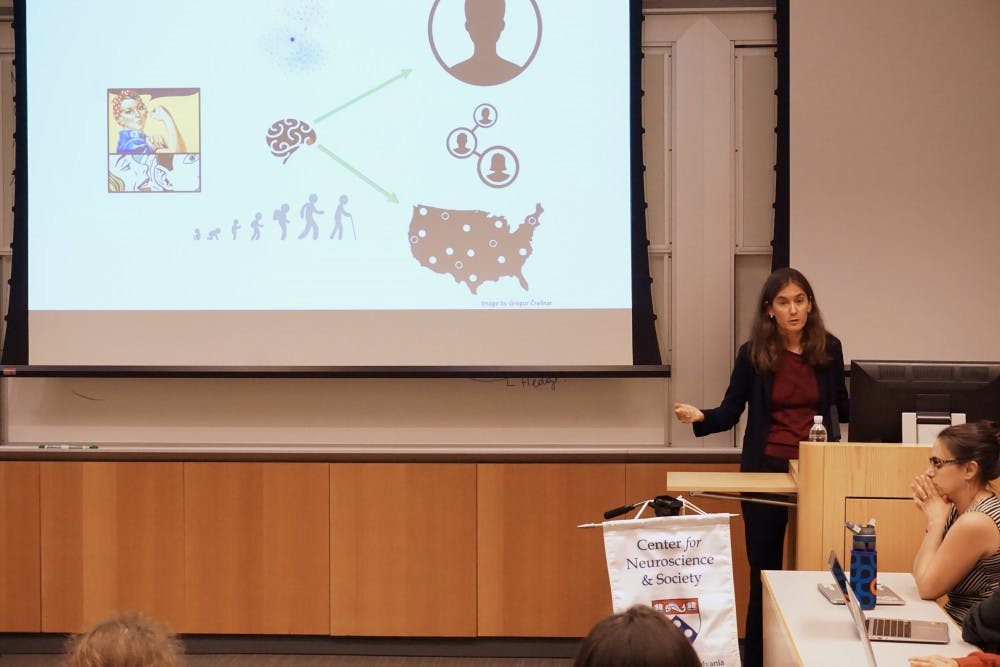A Penn professor spoke about how anti-drinking ads reduce binge drinking among college students in a talk on Thursday.
Communication professor Emily Falk presented her findings from her research group, which discovered that focusing on the unnerving information in anti-smoking and binge drinking ads led subjects to significantly decrease their smoking and drinking habits.
The event was the first Center for Neuroscience & Society Public Talk of the 2019-2020 academic year. Through this lecture series, the center aims to highlight specific issues in neuroscience and their social implications. This year, the public talks will focus on neuroscience research performed by Penn students and faculty.
Annenberg School for Communication lecturer Emile Bruneau was originally scheduled to deliver Thursday’s lecture but had to withdraw due to unforeseen circumstances. Falk spoke instead, describing several studies that tracked brain activity as participants watched health messaging ads in a functional MRI study.

The Center for Neuroscience & Society Public Talk Series is now in its eighth year.
One of the studies Falk presented tracked the drinking habits of a group of 57 Penn students after they watched anti-binge drinking public service announcements, she said. Some of the participants were told to think about the health dangers of drinking while watching the ads, while others were told to think about the flaws in the ads. A control group was told to analyze the ads neutrally.
Falk said her research group found that the group who thought about the health dangers of drinking reported having fewer drinks than the control group in the weeks following the study. Those who thought about flaws in the ads, however, rated the ads more critically and tended to report drinking more in the weeks following the study.
The Public Talk Series is now in its eighth year. Center for Neuroscience & Society Program Manager Sue Yue Chen said that while she handles the administrative work of the lecture series, Director Martha Farah chooses the speakers for each school year and sends invitations during the summer. Chen said the public talks are geared towards a wide audience, even people without a background in neuroscience.

College junior Julci Areza said she found Falk's lecture accessible and enjoyable even though she does not have an intensive background in human neuroscience.
“We try to make the theme every year really interesting to people, especially to people who might not be neuroscientists,” Chen said. She added that members of the center work with each speaker beforehand to make their lectures more “approachable and accessible” to non-scientists.
College junior Julci Areza, an undergraduate fellow at the Center for Neuroscience & Society, said she found Falk's lecture accessible and enjoyable even though she does not have an intensive background in human neuroscience. Areza noted that while she usually sees neuroscience as very removed from society, Falk's lecture helped her see that the work of neuroscientists is extremely present in our daily lives.









